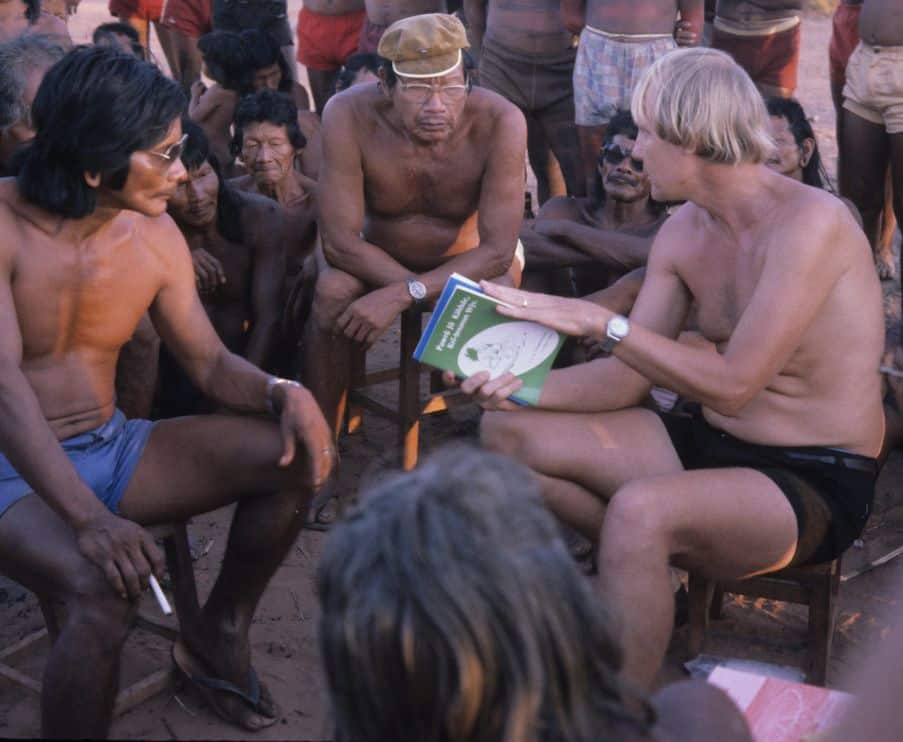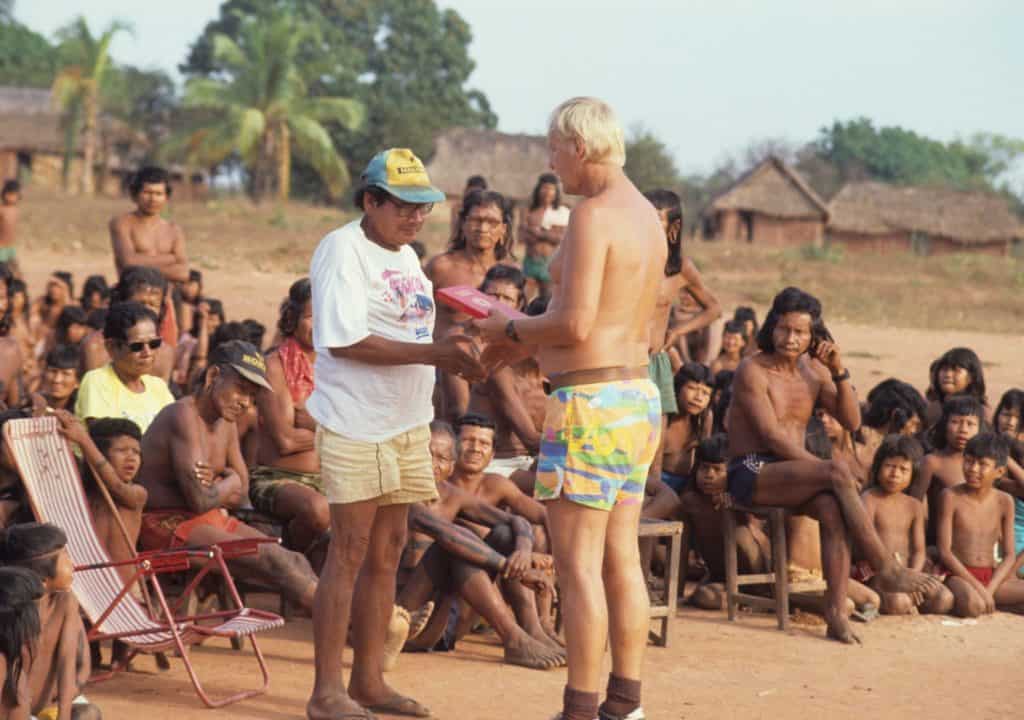Jack and Jo Popjes began working in Bible translation with Brazil’s Canela people in 1968. At that time, the language did not have a written form, the people were illiterate, and there were no believers. By the time the Scriptures were translated into Canela and distributed in 1990, there were scores of Canela believers, all able to read the Bible, and teaching others to read and obey the Word.
The Problem
Each time Jo or I told a story to the Canela people about Jesus performing a miracle, they told us a story of the great exploit of some Canela culture hero from their legends and myths. We tried to tell them that the stories we told them were special, true, real, and unique. Our stories were about the Great Father’s Son. They didn’t understand the difference. We prayed that someday they would.
Then it got worse. The Brazilian government changed, and the new officials would not allow any missionaries to live and work among any indigenous peoples. We felt like we lived in exile away from our home and friends in the Canela village. We prayed that God would intervene.
The Permit
We kept on working at the mission centre in the city, completing seven easy-reading booklets and the books of Luke, Acts, and 1 & 2 Thessalonians. When the newly printed books arrived, we made a formal request to the government to visit the Canela village to deliver these 10 books.
We praised God when we received a notice that permission had been granted but with exceptions. I had to fly to Sao Luis to see the government official. He gave me the permit and asked me to read it, paying careful attention to the last sentence: “The books of sacred Scripture are not included in this permit.”

“Sign this permit,” the official said, “to promise you will not leave the Scripture books in the village.” I shot up a prayer and signed the document. Then we all prayed for God’s solution.
The Excitement
The next day, John, a fellow missionary, and I loaded a steel drum with 75 sets of books packed in plastic bags onto his pickup truck and left for the Canela. They received us with great joy and excitement, especially when they saw the 75 parcels of 10 books in their language. The chief and elders immediately ordered me to the central plaza to report.
I showed them each of the seven reading books. The elders were pleased to see several of their favourite legends in print. When I finished, the chief pointed to the three remaining books, the Scripture books.
“What about those books?” he asked.
“Oh, those are different,” I replied. “I can’t leave them here, even though we made them for you to read.”
“Why not? What are they about?”
“One is about Jesus, the Son of the Great Father, when He lived on earth long ago. And the other is about what the followers of Jesus did. The thin one is the counsel of Paul, one of the elders of the Jesus group.”

“Well, you can at least tell us what is in those books,” the chief said.
The Explanation
So, for the next hour, I read excerpts from each of the Scripture books.
“We really want those books!” the chief exclaimed, “Why can’t you leave them?”
“I promised not to leave them. But I’ll leave them with my friend Sr. Duca in Barra town,” I said, “You can go there and pick them up and bring them in yourselves.”
The Canela elders complained, “It’s 70 kilometres to town. That’s four days of walking!”
“Do those government people have these stories in their language?” the chief asked.
“Yes, they have. All the stories about Jesus were translated into Portuguese long ago. Brazilians have been reading them for many generations.”
“Then, why can’t we read those books and choose whether we want them or not? They did!” the chief exclaimed.
“Just leave them here,” one of the elders advised, “We won’t tell anyone you did.”
“No, I’m sorry, I can’t do that,” I said, showing them my copy of the document.“ I promised the government chief that I would not leave them in the village and signed this paper.”
The Chief’s Anger
Suddenly, the chief sprang up, pulling his machete from its sheath. He laid the sharp edge on his forearm, and, with his face inches from mine, shouted, “If I cut my arm what comes out? Blue stuff? No! Red blood. We Canelas are human beings just like those city people! Why do they treat us as if we aren’t people? Why can’t we have what they have had for a long time?”
I couldn’t answer, and we sat quietly for a while. Then the chief said, “The elders’ council will talk about this some more, and in the morning, we’ll tell you what we have decided.”

God Reveals His Weapon
At sunrise, the chief ordered, “Put all those books back into that steel drum on your truck. Then, drive back up the road through the gate where the Indian land ends. My son will follow you on the government tractor and will bring the drum back and distribute the books. You will have kept your promise, and we will have all the books.”
We heard later that the first books everyone wanted to read were, of course, the special books, the forbidden ones. It was a clear example of Psalm 76:10, “Human defiance only enhances your glory, for you use it as a weapon.” (NLT). God used the government’s angry prohibition to draw attention to the uniqueness of His Word. From then on, the Canelas considered the Bible stories as special, true, and unique.
When, over 10 years later, the Scriptures were published the book was called, Pahpam Jarkwa Cupahti Jo Kahhoc. God’s Highly Respected Word.
This story is an excerpt from the memoir of the Canela Decades Jack is currently completing, From Adventure to Spiritual Battle.
Source: jackpopjes.com

